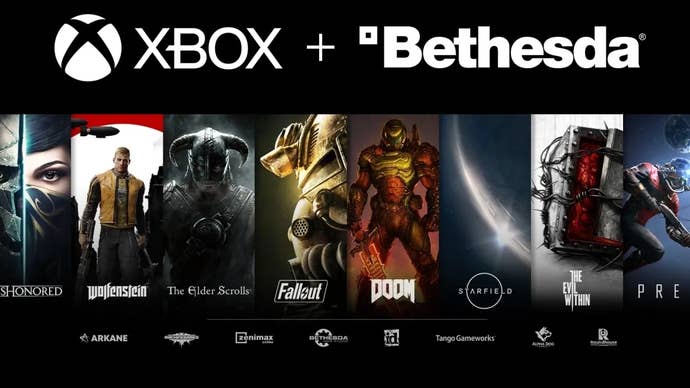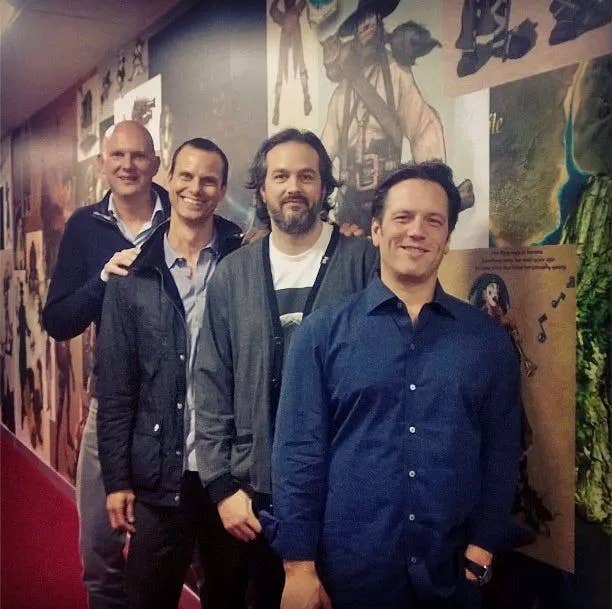The platform holder has repeated the same terrible mistakes for over a decade.
The reason is simple: its priorities are back-to-front.
The 360 years feel like a lifetime ago.

It has been a disastrous piece of PR self-sabotage, particularly with the reputations of these studios in mind.
Alpha Dog made mobile games, an area where Microsoft has been specifically looking to expand.
It just bought these studios in 2021.

If it weren’t for the people involved, in 2024, these closures would almost feel routine.
The good times have always felt just over the horizon.
The growing sentiment today is that they’ll probably never come.

The immediate response is, justifiably, anger.
But with Microsoft and Xbox, the problem feels part of something bigger.
Think of any entertainment company.

Why was that company founded?
Well, in very vague terms: to provide that entertainment.
People set up game development studios so they can make games.

They set up production companies so they can make films.
Satoru Iwata put it much better.
What is the point of Xbox?
The point of Xbox is to achieve, apparently, growth on a massive scale.
It is to make more money than it did the year before.
But the issue with its priorities ran deeper than the hardware.

“It’s not soccer.
It’s not American Football.
It’s not a first-person shooter sized category.

So at a commercial level, I would say it was successful, but not wildly so.”
Wildly successful was what Microsoft was after.
A pitch for Fable 4 was rejected.
“I thought, yes we can.
They’re getting four years and a lot of budget.
Give us that, and we’ll give you something that’ll get you your players.
Nah, you’ve had three shots and you’ve only tripled the money.
It’s not good enough.
That’s what I was annoyed about.”
It struggled with development, specifically the unfamiliar concepts like monetisation or multiplayer balance.
All while the free-to-play model of the time relied on development itself being relatively cheap.
A year after the debacle with Lionhead, hotly-anticipated exclusive Scalebound was cancelled in similar circumstances.
The lust for scale continued.
That same year came Game Pass, before its full launch in 2018.
And yet again, that quest for massive, roof-shattering growth seems doomed.
What might help with that is if Xbox sold more consoles to begin with.
What else is new?
How are things back there in 2017?!
- but these problems are all connected.
It can’t ship a big, successful video game because itdoes not prioritise making one.
Okay - how is that done?
As a platform-holder specifically it’s different to other publishers.
By contrast, the culture that’s developed at Xbox is seemingly one-and-done.
One strike and you’re out.
Redfall didn’t work?
When Lionhead was closed in 2016, some developers had been there since the studio was founded in 1997.
It drags every developer on that platform towards conservatism, risk-aversion and safe bets.
Towards derivativeness - X game with Y elements is big right now - and ultimately creative death.
The big games this year are Palworld, sure, but also Helldivers 2 and Manor Lords and Balatro.
They are surprises, often left-field ones, and sometimes also expensive.
Meanwhile Xbox is chasing the highs of a genre that carried a previous generation.
Helldivers 2, for what it’s worth, took eight years to get made.
Does any studio last that long without shipping at Xbox today?
Does any Xbox game get that chance?
Fable Legends certainly didn’t.
Rewind to Lionhead in 2016, and the only brief justification given at the time.
“A couple of years later, we reflected back on that experience.
What did we learn, how do we not repeat our same mistakes?”
Not them accelerate what you do."
I think we’re about to topple over."
Both were pitching new projects, and needed to staff up and take the time to make them.
Xbox closed these studios, apparently, for having the audacity to give a shot to make video games.
Let’s go back to Lionhead, one last time.
There was never a full reason given for that studio’s closure.
Its employees had different theories: cost-cutting is the recurring one.
Xbox’s leadership clearly knows it’s a problem.
The principles that say expertise, creativity and talent are less valuable than the cost to let them flourish.
It, and I suspect much of the video game world, no longer knows why it exists.